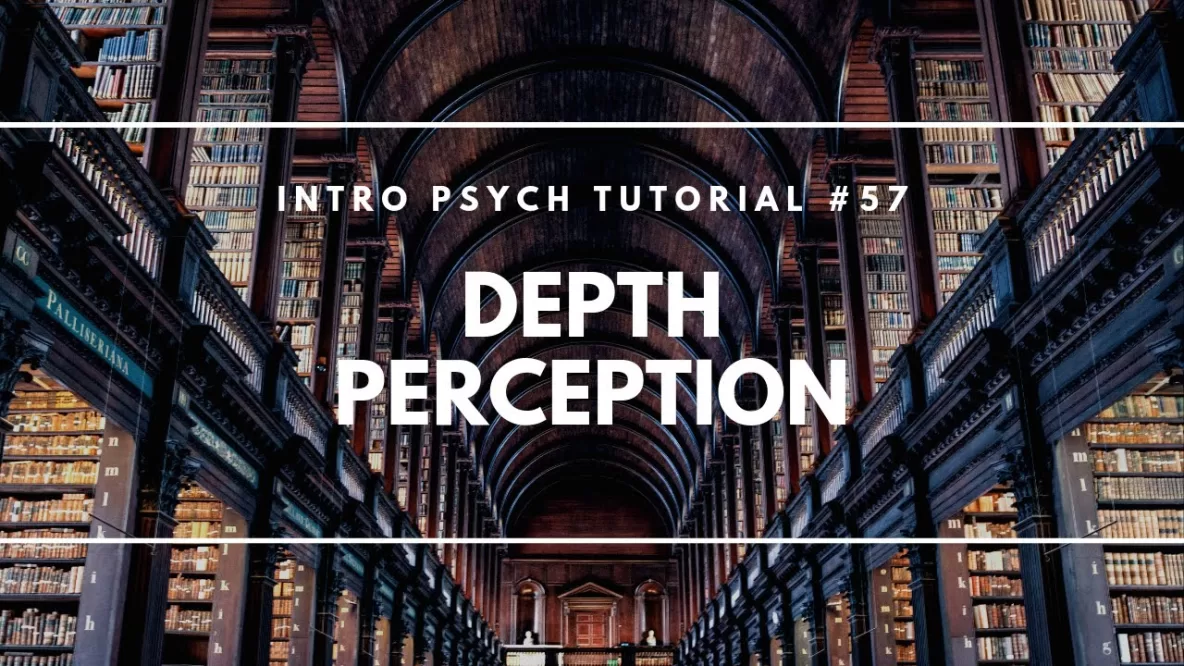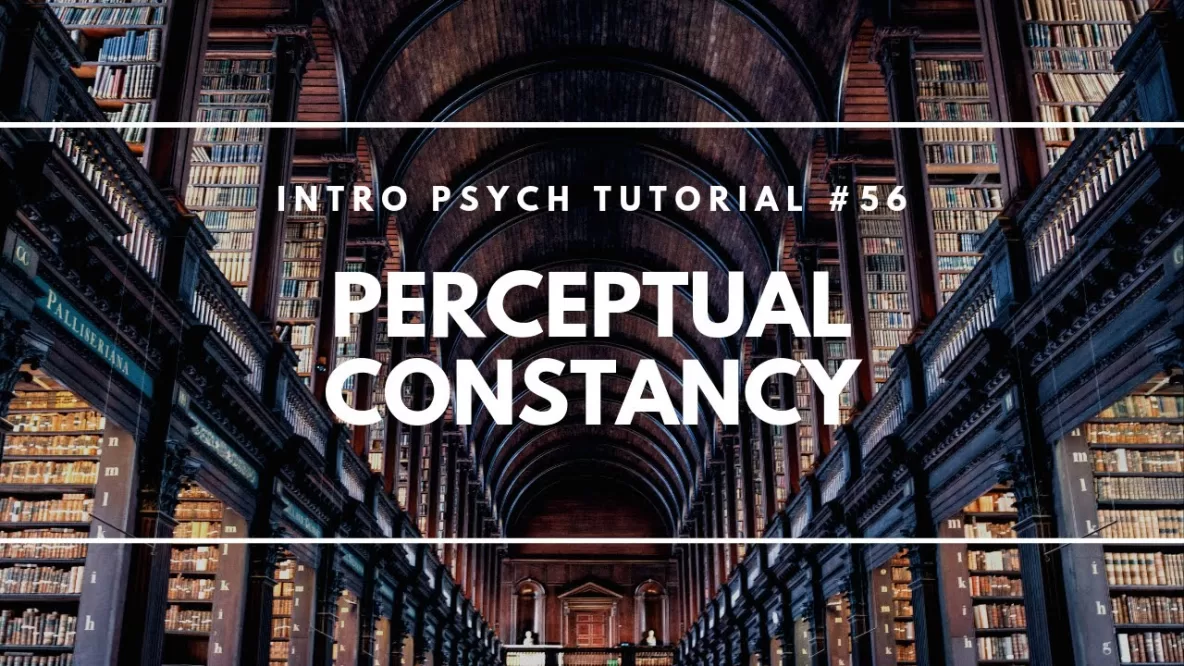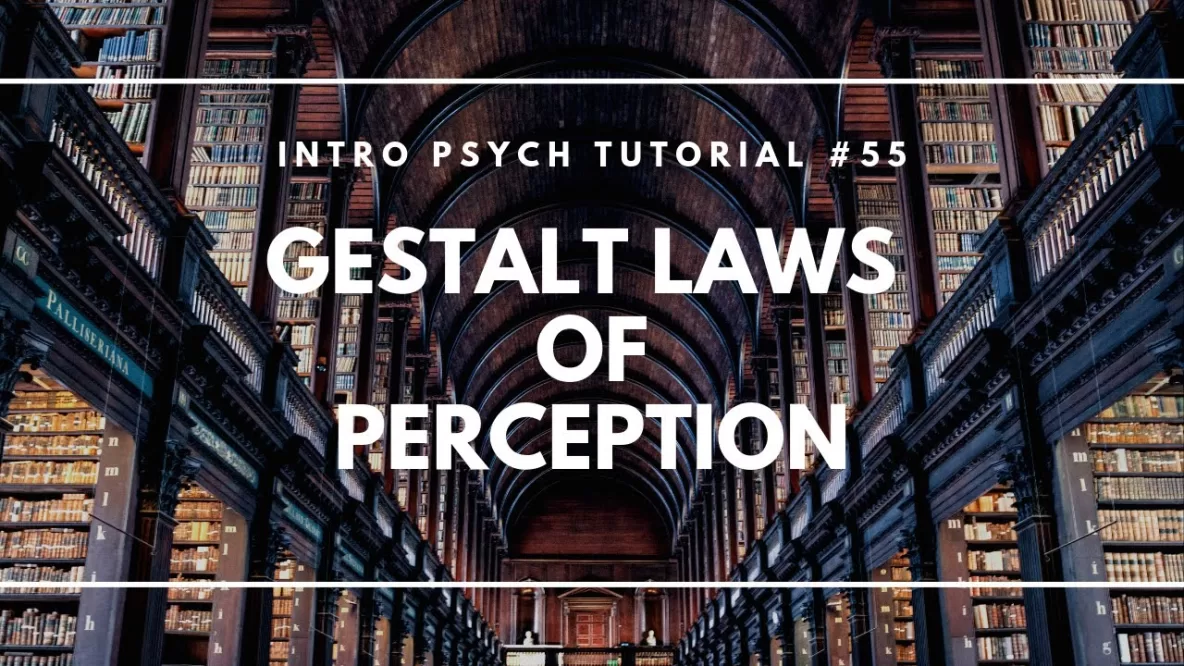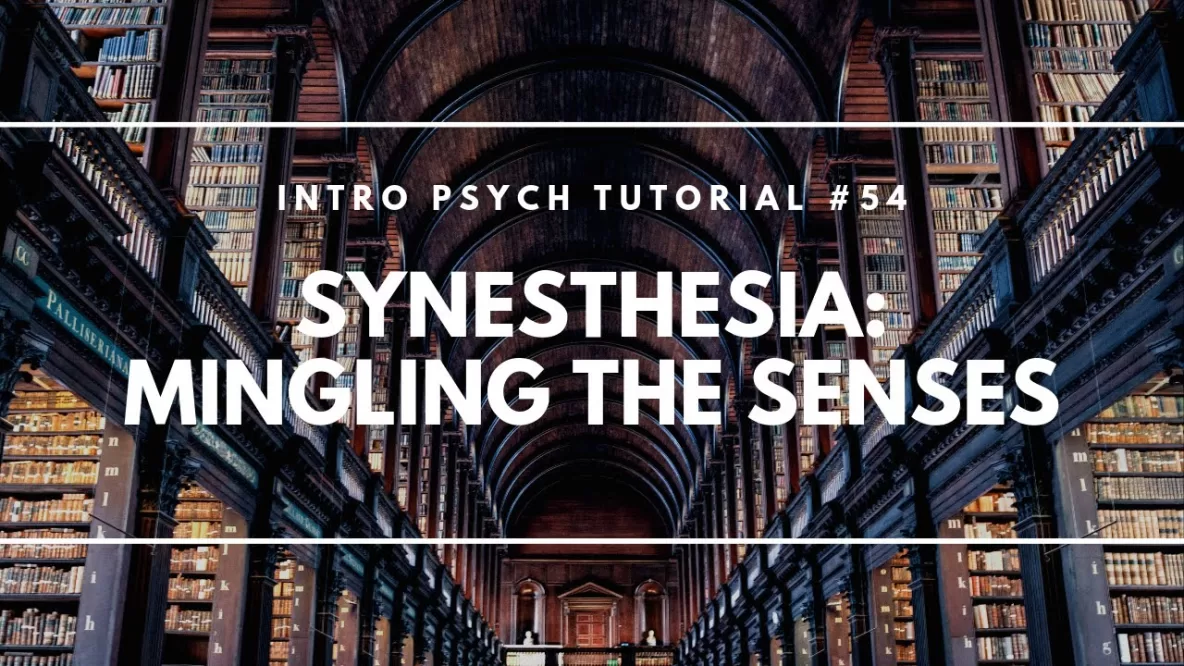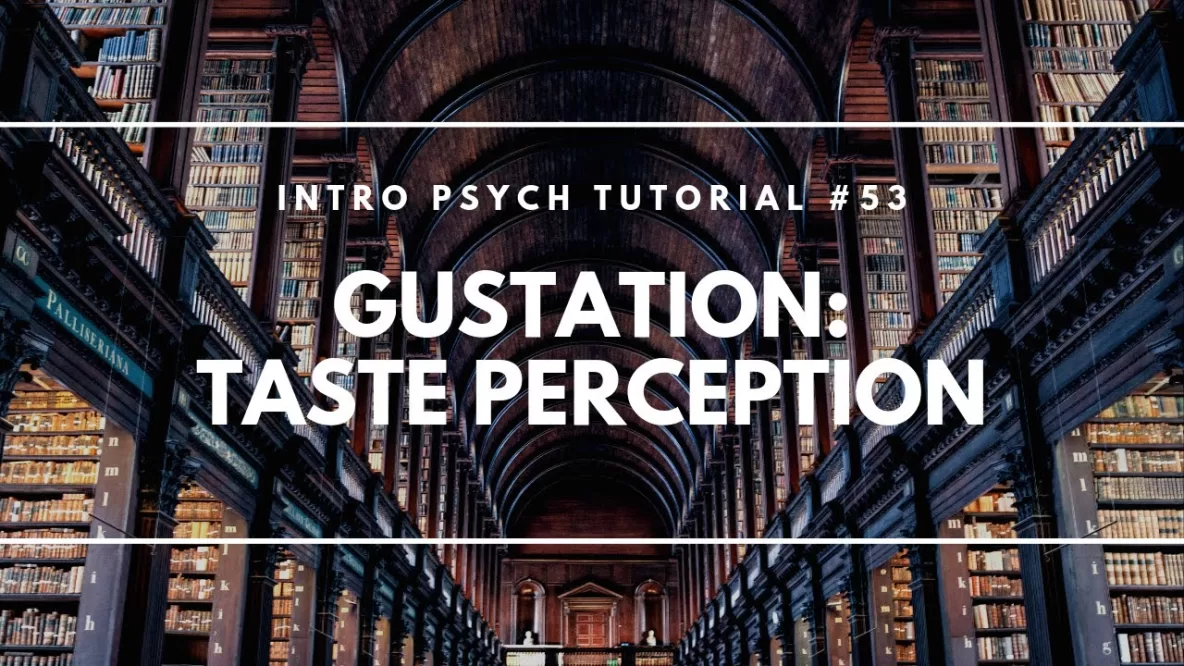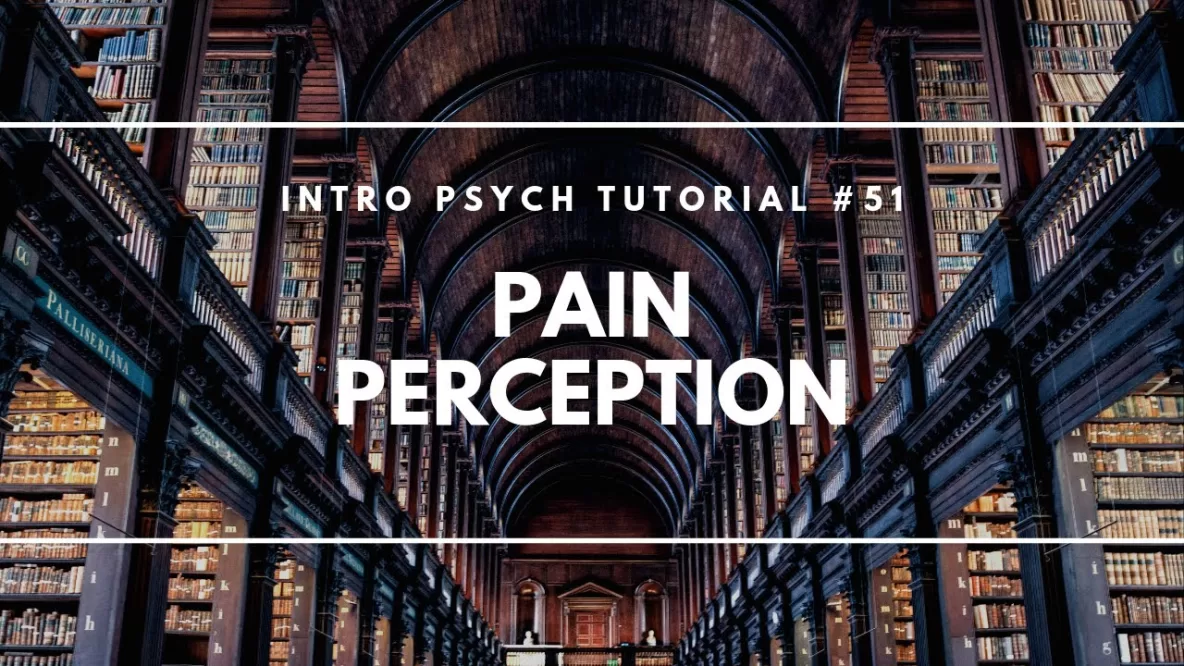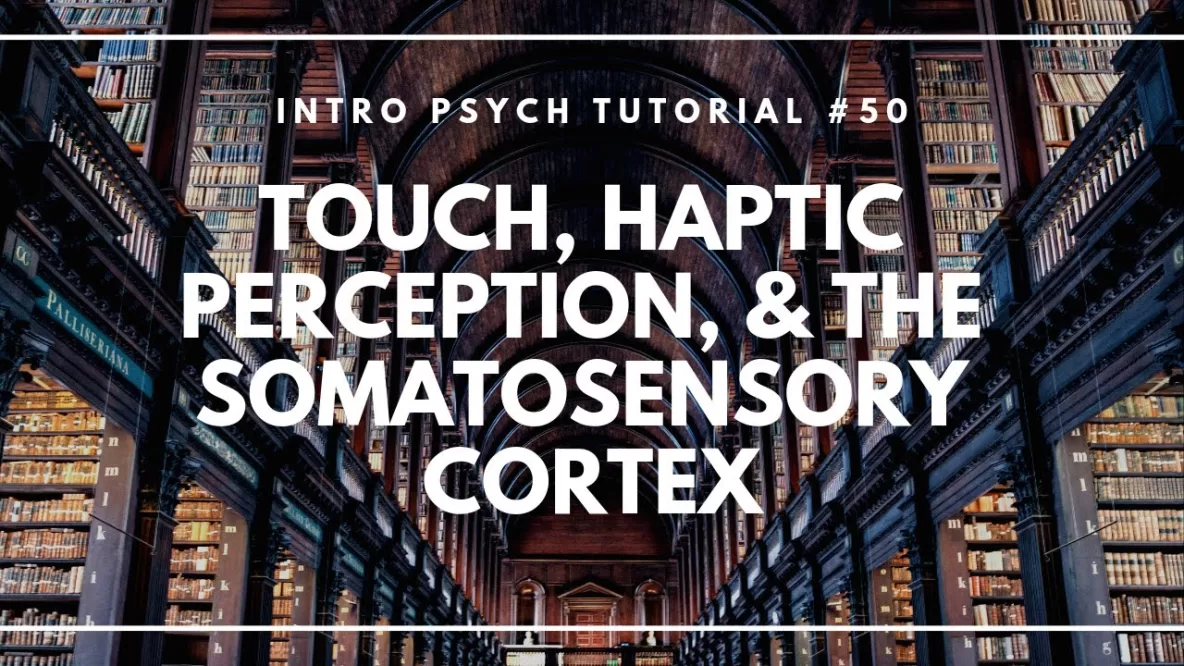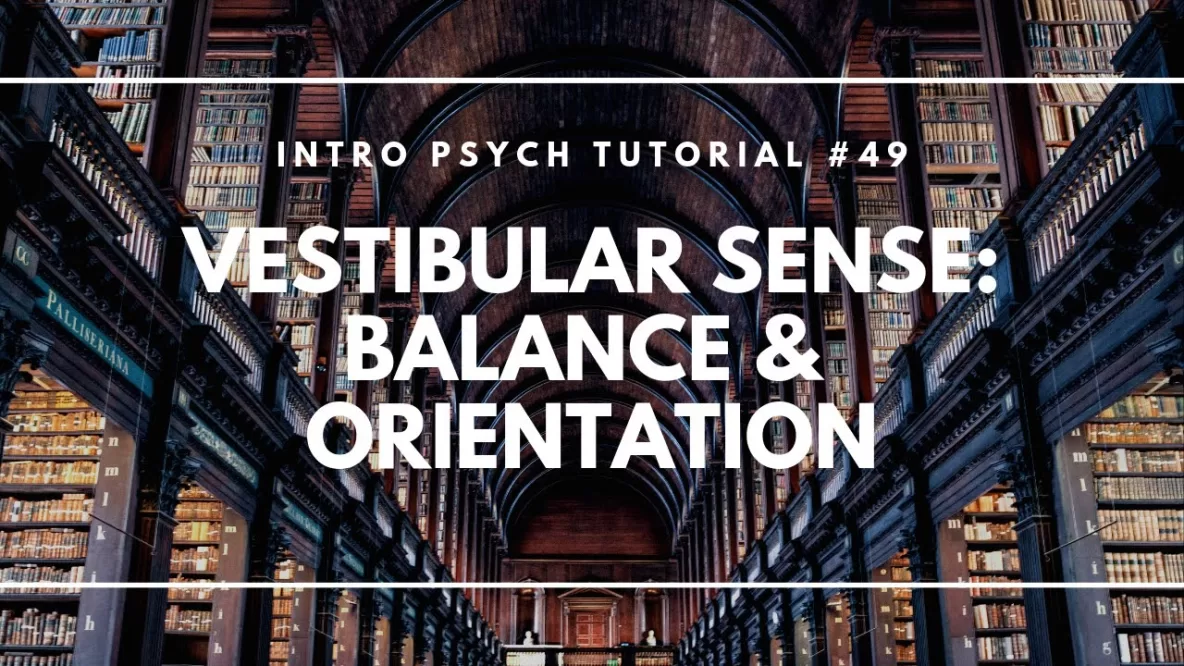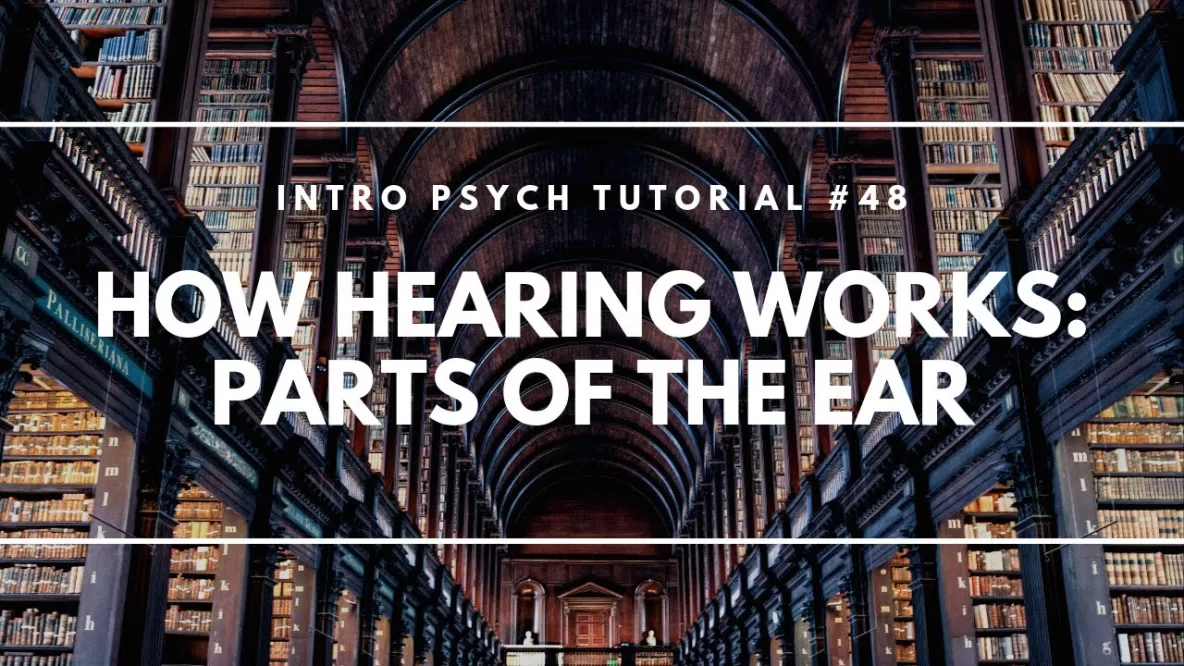In this video I describe the many cues that we use to perceive depth and experience a 3D world based on the 2D information from our retinas. These include monocular cues (linear perspective, relative size, texture gradient, interposition, and shading), … Read More
Perceptual Constancy
In this video I describe perceptual constancy, which refers to the idea that we perceive a relatively stable and unchanging world despite the fact that sensory information is changing dramatically. I explain how this applies visually to size, brightness, and … Read More
Gestalt Laws of Perception
In this video I focus on perception and how we make sense of the information coming in from our senses. Gestalt laws refer to general principles for organizing and interpreting sensory information. I provide visual examples for several gestalt laws … Read More
Synesthesia: Mingling the Senses
In this video I explain synesthesia, in which stimulation of one sense can automatically stimulate another, such as seeing colors when hearing pitches or tasting sounds. I also demonstrate one way that researchers can test certain types of synesthesia and … Read More
Gustation: Taste Perception
In this video I explain the process of transduction for taste and how gustatory cells detect tastant molecules in food. I discuss structures of the tongue, including papillae, taste buds, and gustatory cells and consider evolutionary explanations for changes in … Read More
Olfaction: Sense of Smell
In this video I explain the process of transduction for scent; how odorant molecules in the air can trigger different olfactory receptor neurons which then send messages to the rhinencephalon or “nose brain”. I mention the links between scent, emotion, … Read More
Pain Perception
In this video I go into more detail on pain perception. First I discuss the importance of pain as a signal of danger or harm to the body. Next I explain the two types of nerve fibers which carry different … Read More
Touch, Haptic Perception, & the Somatosensory Cortex
In this video I describe touch sensation and haptic perception, which refers to exploring the world by grasping. I outline the types of receptor in the skin including mechanoreceptors, thermoreceptors, and nocireceptors, and then discuss how signals are mapped out … Read More
Vestibular Sense: Balance & Orientation
In this video I describe the parts of the vestibular system and how they use the movement of fluid to communicate information about balance, movement, and orientation. The vestibular sense also incorporates information from other sensory systems and this can … Read More
How Hearing Works: Parts of the Ear
In this video I explain the process of transduction for hearing in order to convert soundwaves into neural activity. I describe each of the parts of the ear and discuss how the movement of fluid in the basilar membrane triggers … Read More

